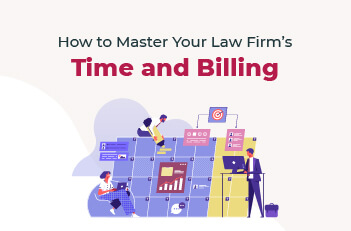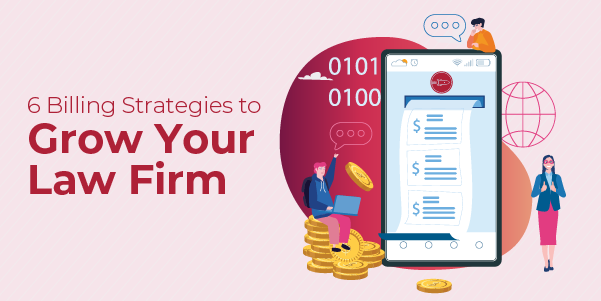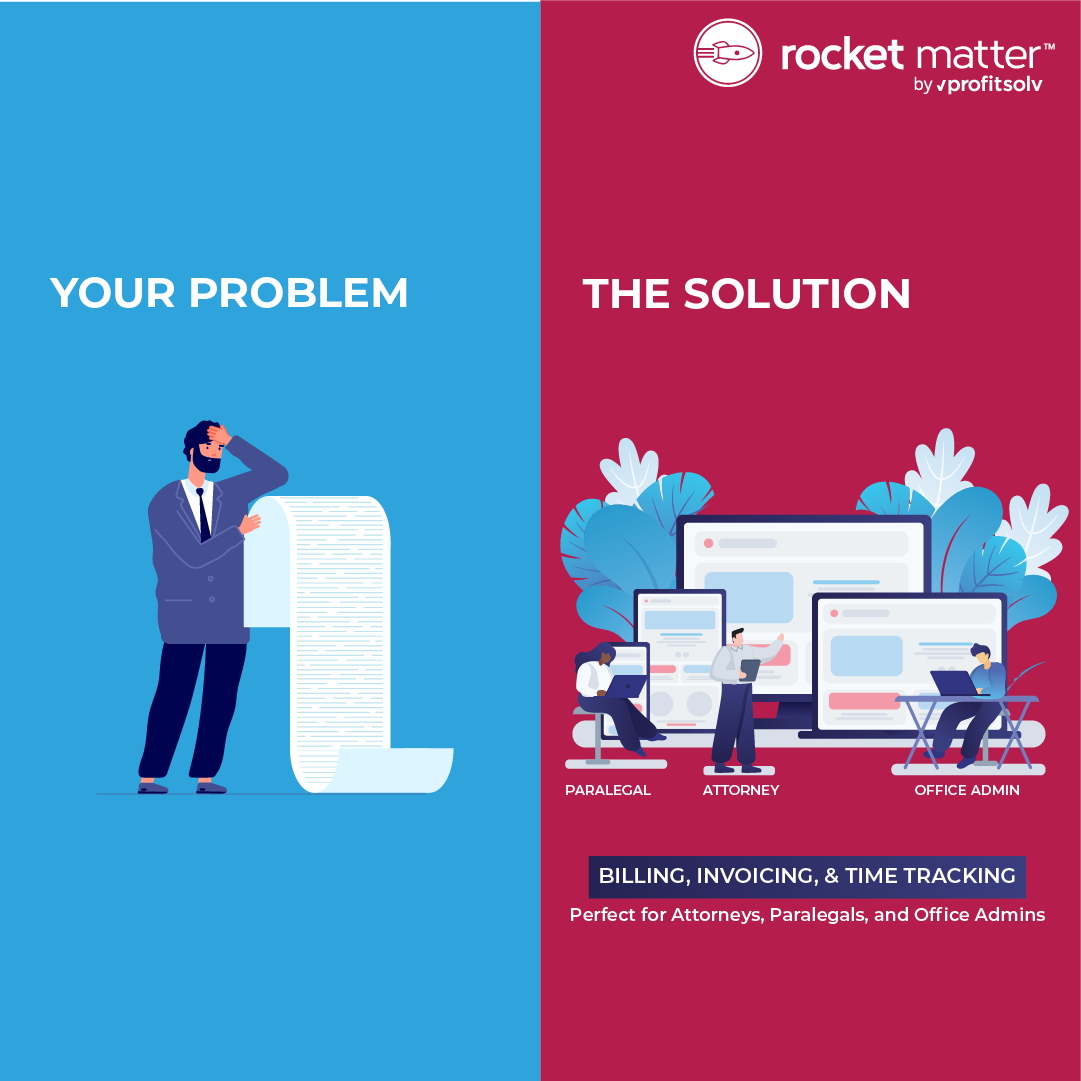How Secure File-Sharing and eSignatures Protect Your Client Data

Most people know that online security is a big issue in an increasingly digital world. But in the legal field, where client confidentiality is critical to maintaining ABA compliance, it can be especially tricky.
On one hand, clients prioritize convenience. People want everything as fast and easy as possible, and without a doubt, online file-sharing and electronic signatures play a critical role in streamlining the client experience. But on the other hand, you also want to keep your files (and your client’s data) secure.
But with secure file-sharing and eSignature software, you don’t need to choose between convenience and security.
Why you should care about your firm’s digital security
Let’s just rip off the bandaid: the average cost of a data breach globally in 2022 was $4.35 million. And if you think that number is scary, consider that it was the global average. In the United States, the average cost of a data breach was a whopping $9.44 million.
Now, not every firm will face such debilitating fees, but the costs can be significant. Just look at the mid-sized Ohio firm Bricker & Eckler. In 2022, they agreed to a $1.95 million settlement for a class action lawsuit stemming from a data breach at their firm.
We also have to face the fact that data breaches are becoming much more common for law firms than they were ten years ago—and they’re affecting more people. In 2021, law firm data breaches affected 720,000 Americans.
The bottom line is that now more than ever, it’s critical to take proactive measures for data security and file encryption.
However, it’s not exactly convenient to share information and important documents with clients if you keep files in a proverbial bank vault. So how can law firms enjoy the best of both worlds?
How to balance security and client convenience
Beyond only doing business in person (which seems like the least-likely choice for client convenience), law firms may find themselves in a Goldilocks scenario, searching for the right balance of features they need to share and send files securely and conveniently.
Too hot: Share files via email attachment
While this was once an accepted method of transferring documents, we now know that email can be easily hacked. In 2022, 82% of data breaches were the result of human error, and more than 30% of breaches stemmed from email phishing.
Plus, file size limitations aren’t exactly what we would call “convenient.”
Too cold: Client portals
Client portals protect personal information, but some clients find them confusing to navigate. As a result, many clients may be reluctant to adopt the technology (and remember a new password), creating barriers to communication.
While client portals can be an essential part of the client experience, you may need supplemental practices to provide optimized client convenience and satisfaction.
Free Guide
The Paperless Law Office: A 12-Month Plan
for Going Paperless
This free guide will provide you with an actionable plan for going paperless, with monthly tasks that include:
1. Determining your paperless processes
2. Establishing naming and filing conventions
3. Choosing an online storage provider
4. Embracing mobile paperless tools
5. And more important resources!
Secure file-sharing and eSignature software: the best of both worlds
Emails are too hot. Client portals are too cold. File-sharing and eSignature software, though?
Just right.
Secure file-sharing
Secure file-sharing is the best balance of data security and client convenience. For users, secure file-sharing makes it possible to access information via a secure link in their email. Plus, unlike email attachments, which can only be so large, secure file-sharing allows file transfers of any size.
From a security standpoint, secure file-sharing uses layers of defense, including secure links, encryption, role-based access permissions, and password protection. For example, Rocket Matter’s file-sharing and eSignature features, powered by LexShare, allow users to request, send, and receive legal documents securely, without having to log into a client portal.
From a logistical standpoint, with remote work on the rise, your software also needs to adapt to changing locations without sacrificing security. Secure file-sharing programs combined with eSignature features allow lawyers and clients to further case matters without ever having to drive to the office.
eSignatures
As legally binding as a handwritten signature, eSignatures also provide more layers of security than email or the postal service. As part of secure file-sharing, eSignatures feature encryption tools, knowledge-based authentication, and secure links to protect clients’ confidential information.
eSignatures also significantly improve turnaround times for document signatures—by as much as 80%. Clients are much more likely to sign a document upon receipt if they can do so straight from their laptops or smartphones.
So instead of spending hours hounding out clients for documents on a deadline, you can spend your time on more productive matters.
Best practices for secure file-sharing and eSignatures
A tool can be the shiniest, strongest, most useful tool in the box. But if you don’t know how to use it, that perfect shiny tool is just going to gather dust.
Here are a few tips to help you maximize ROI for secure file-sharing and eSignature software.
1. Train your staff
Rushing a software rollout with your team is just going to create more confusion for your staff and your clients. Be sure to provide adequate training and frequent follow-ups to give your team time to explore the program and understand its full functionality.
Consider creating an FAQ resource for staff to refer to with common questions.
2. Communicate with your clients
Alongside internal communication, successful adoption requires external client communication.
- For established clients: explain the new program in advance of the switch, multiple times (think about it: do you read every single non-urgent email?). Give them plenty of time to ask questions.
- For new clients: explain the system during the onboarding process so it doesn’t come as a surprise.
3. Select software that integrates with your practice management system
The whole point of secure file-sharing and eSignatures is to make your life easier. So do your research, and choose the program that makes your life easier. A file-sharing system should integrate with your existing legal practice management software for optimal performance. Otherwise, you’re just adding more bottlenecks to an existing workflow.
For example, RocketMatter’s file-sharing and eSignature features are fully integrated with its practice management system, so firms can keep documents organized directly in the case matter dashboard, and send files without ever leaving the program.
Get the security you need with Rocket Matter
Secure-file sharing and eSignature features are an integrated part of Rocket Matter’s Pro and Premier plans for law firms. Beyond file-sharing capabilities, Rocket Matter’s legal practice management software is designed to help your firm work more effectively, efficiently, and securely.
To protect your clients and position your team for success, schedule a demo today.
Free Guide
The Paperless Law Office: A 12-Month Plan
for Going Paperless
This free guide will provide you with an actionable plan for going paperless, with monthly tasks that include:
1. Determining your paperless processes
2. Establishing naming and filing conventions
3. Choosing an online storage provider
4. Embracing mobile paperless tools
5. And more important resources!
Related Resources

How to Increase Your Profits with Rocket Matter
Lawyers in firms of all sizes struggle to finish the work for the day in a reasonable amount of time. With document creation, non-billable tasks, and time spent following up with current and potential clients, the workday quickly turns from a planned eight-hour day into a twelve-hour one.

How to Master Your Law Firm’s Time and Billing
Lawyers have a heavy workload. With so many clients and their various needs, it’s easy to put tedious administrative tasks like time tracking and billing on the back burner.

6 Billing Strategies to Grow Your Law Firm
Scaling your law firm doesn’t just mean adding more lawyers or increasing your number of clients. The best way to boost your law firm’s finances is to minimize your non-billable hours and make sure that every hour of your day is accounted for.
Share post:









